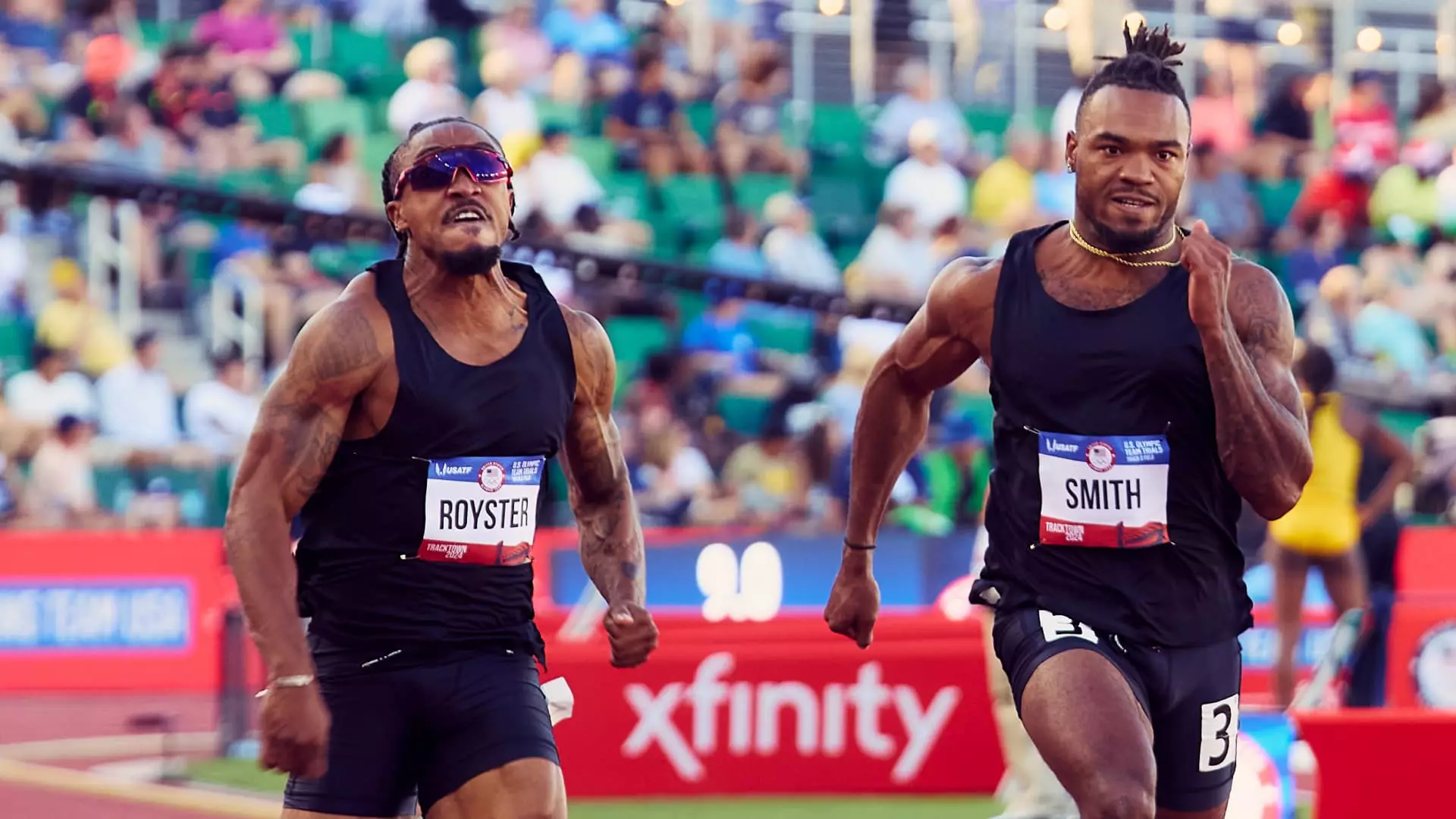The presence of 35 unsponsored athletes at the U.S. Track & Field Olympic Trials this year is turning heads. These athletes, decked out in all-black, logo-less gear, are being supported by Bandit Running’s Unsponsored Project. This initiative challenges the traditional sponsorship model for professional athletes and aims to uplift up-and-coming competitors. Instead of unsponsored athletes having to purchase apparel bearing major brands’ logos to compete, Bandit Running offers them all-black kits and warmups, along with short-term endorsement deals.
Bandit Running’s co-founder, Tim West, expressed the company’s vision for a new sponsorship model where brands allocate a portion of their budget to support amateur and sub-elite athletes. By helping to grow the sport from the grassroots level, West believes that lifting up athletes at the bottom will benefit the entire athletic community. The two-week deals provided by Bandit Running to unsponsored runners at the trials include unbranded apparel, a platform, and cash to cover expenses. These deals also come with a built-in release clause, allowing athletes to transition to traditional sponsorship if the opportunity arises.
Athletes like Courtney Okolo, a 400-meter runner and gold medalist from the 2016 Rio Olympics, understand the financial struggles of competing without a sponsor. Okolo, now 30, acknowledges the high costs associated with training, travel, accommodations, and competition apparel. While she was fortunate to have a four-year sponsorship with Nike, Okolo recognizes that many athletes face challenges in balancing financial stability with athletic pursuits. The support provided by Bandit Running’s Unsponsored Project offers a lifeline to athletes like Okolo who are navigating the complexities of self-funding their Olympic dreams.
Brandee Johnson, a 26-year-old unsponsored track athlete who qualified for the Olympic trials, exemplifies the dedication and perseverance required to pursue Olympic aspirations without traditional sponsorship. Johnson, who works two jobs and a side gig to support her training regimen, found solace in joining the Unsponsored Project. By aligning herself with a movement that promotes inclusivity and support for athletes at all levels, Johnson feels empowered to chase her dreams with a renewed sense of purpose and community. The initiative not only provides tangible resources but also instills a sense of belonging and confidence in athletes like Johnson who are defying financial odds to compete at the highest level.
Bandit Running’s Unsponsored Project is not only reshaping the sponsorship landscape in track and field but also empowering athletes to pursue their Olympic dreams without the traditional constraints of corporate endorsements. By investing in the grassroots and amplifying the voices of unsponsored athletes, this initiative is fostering a more equitable and inclusive environment within the realm of professional sports. The stories of athletes like Courtney Okolo and Brandee Johnson serve as testaments to the resilience and tenacity of individuals who refuse to let financial limitations hinder their pursuit of greatness on the track. As Bandit Running continues to champion unsponsored athletes, the future of track and field appears brighter and more accessible to those who dare to dream.

